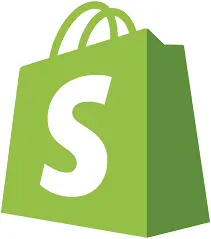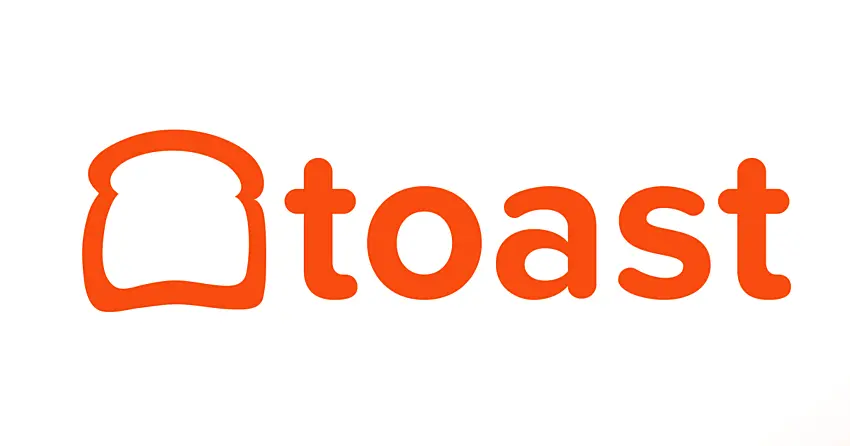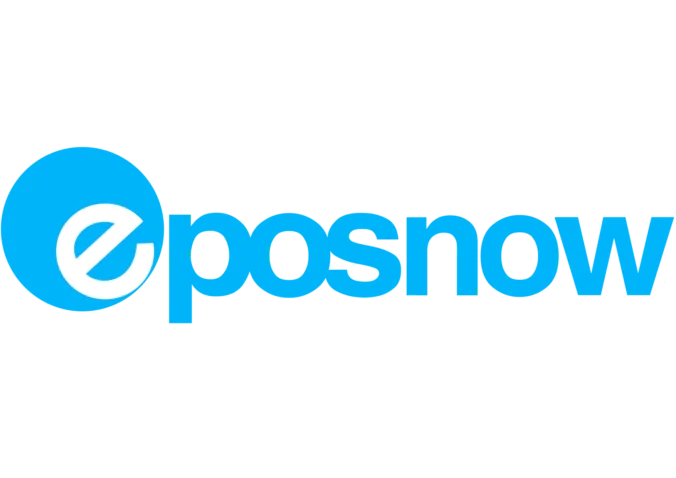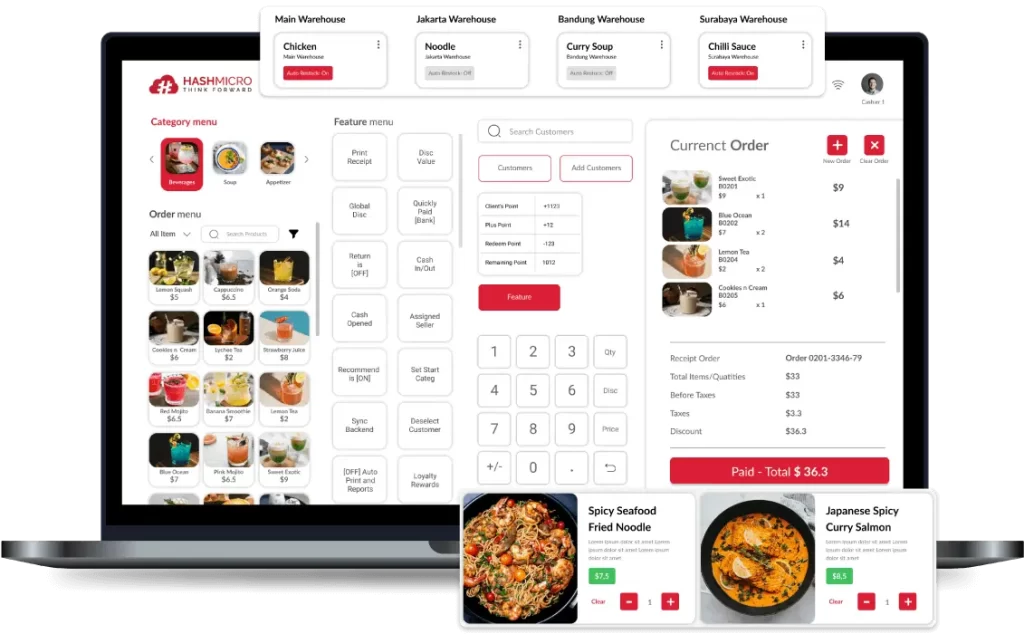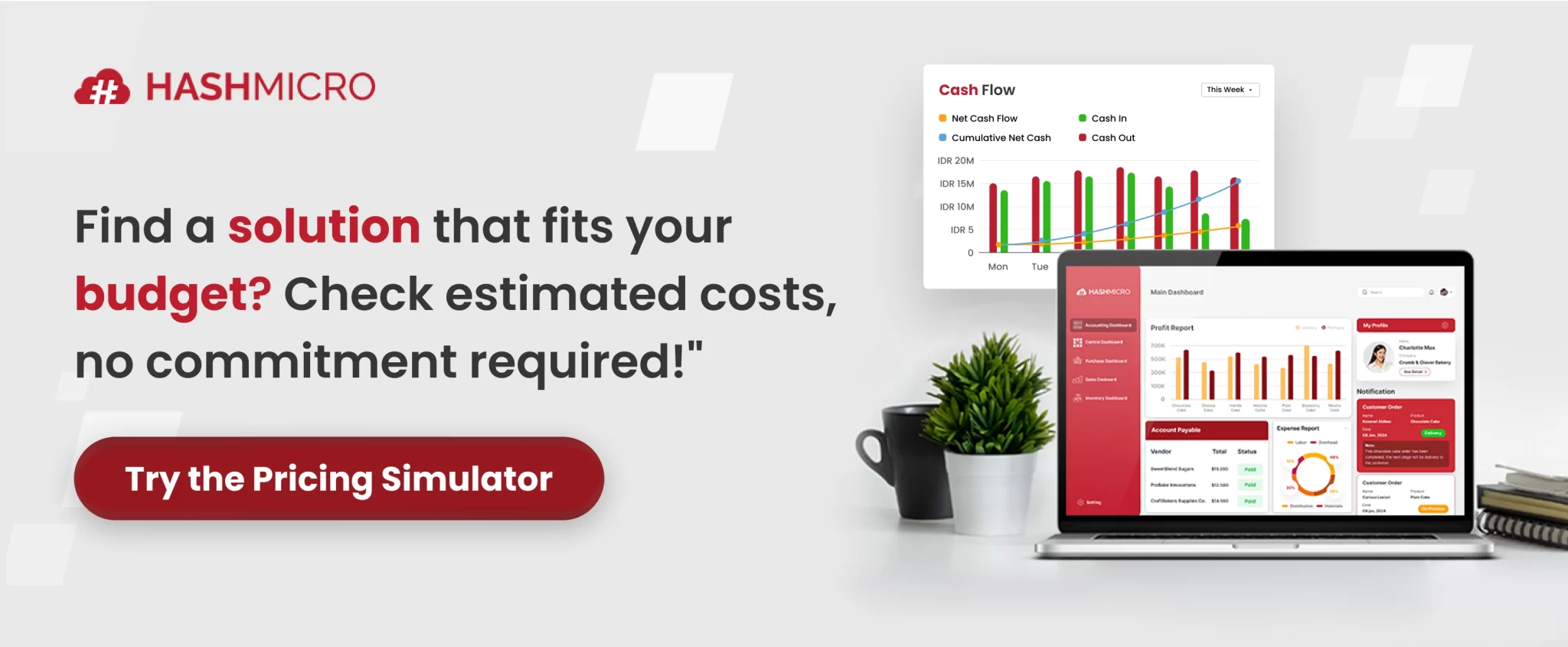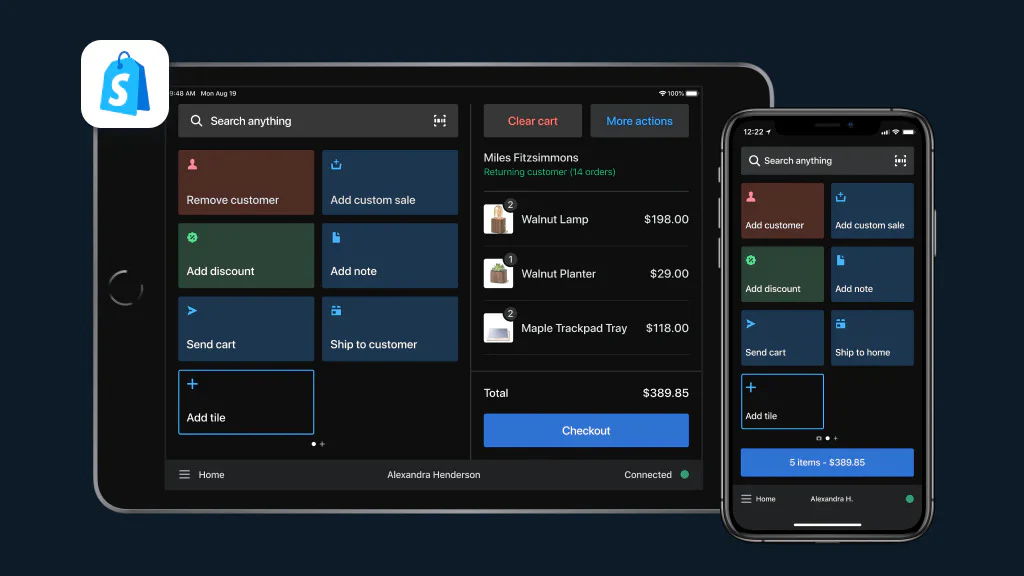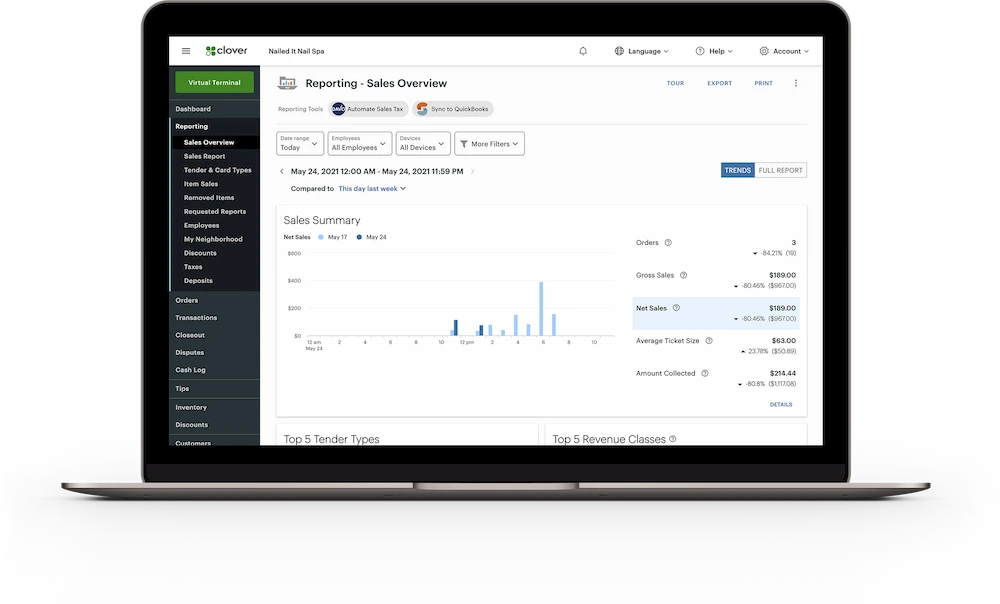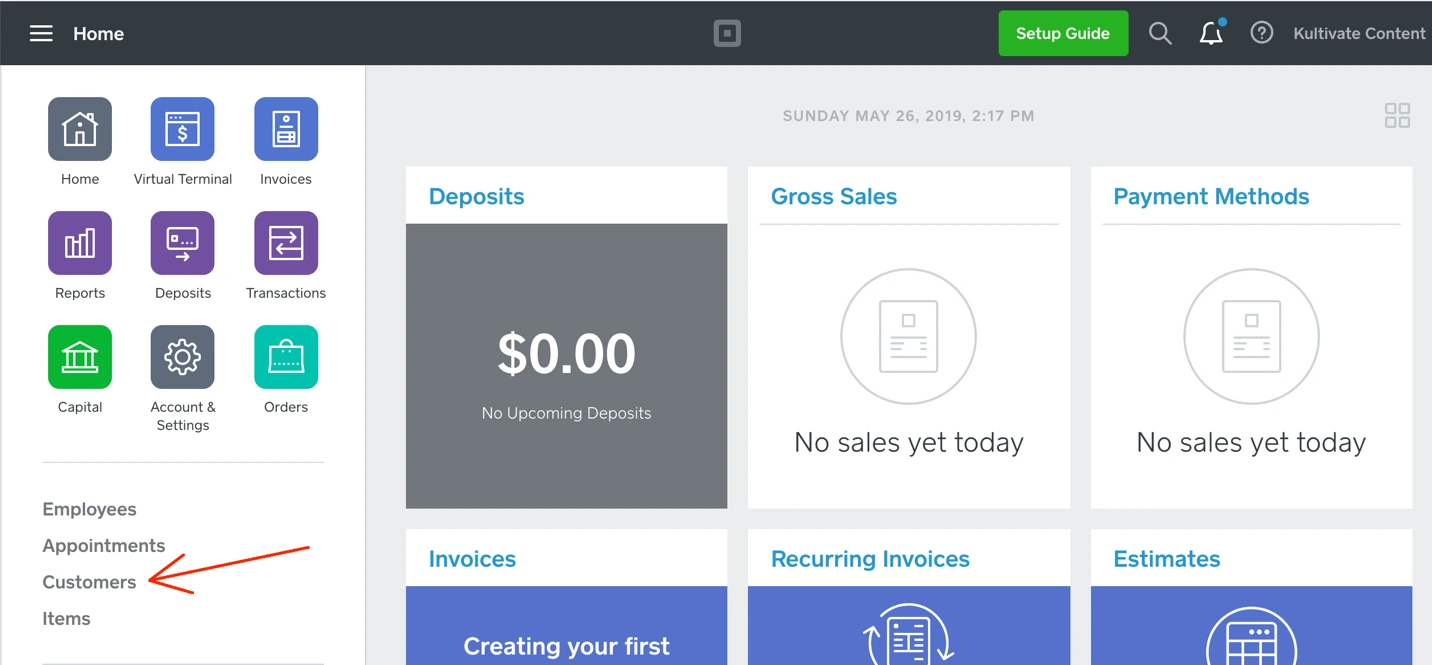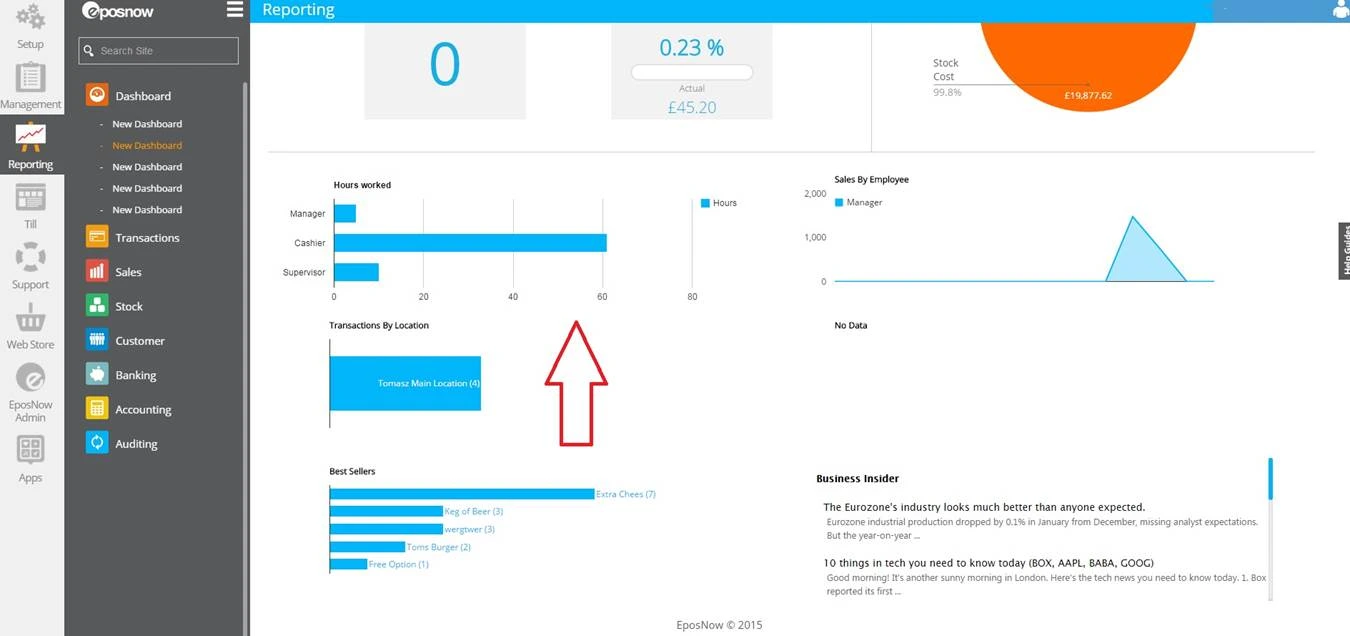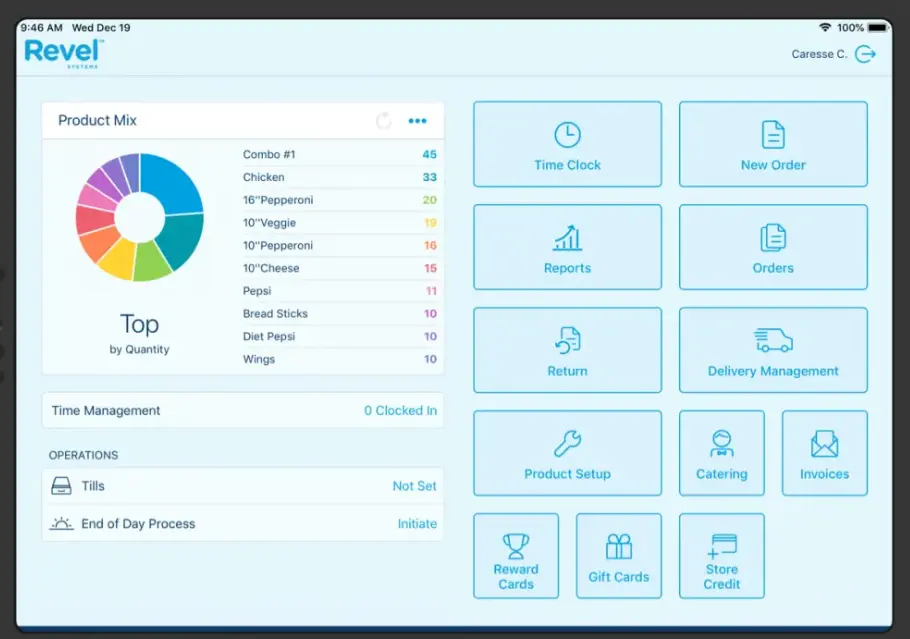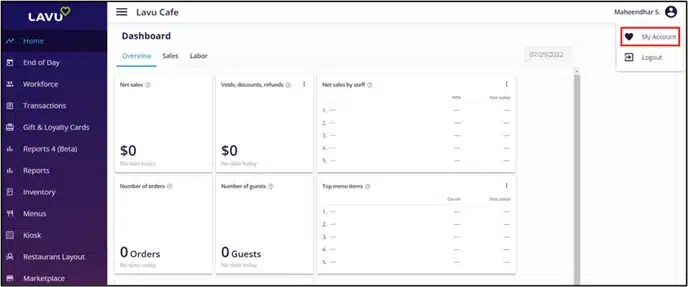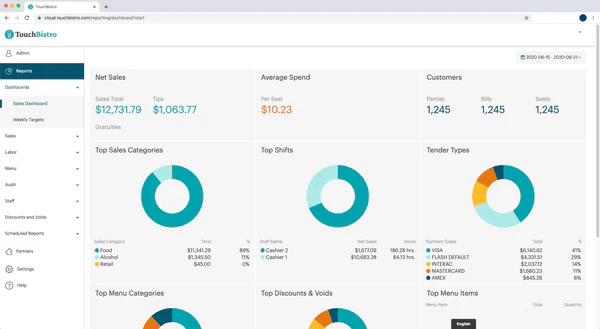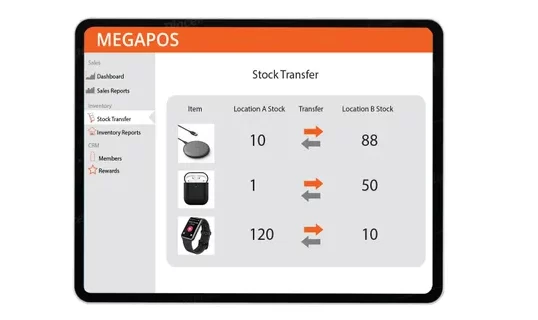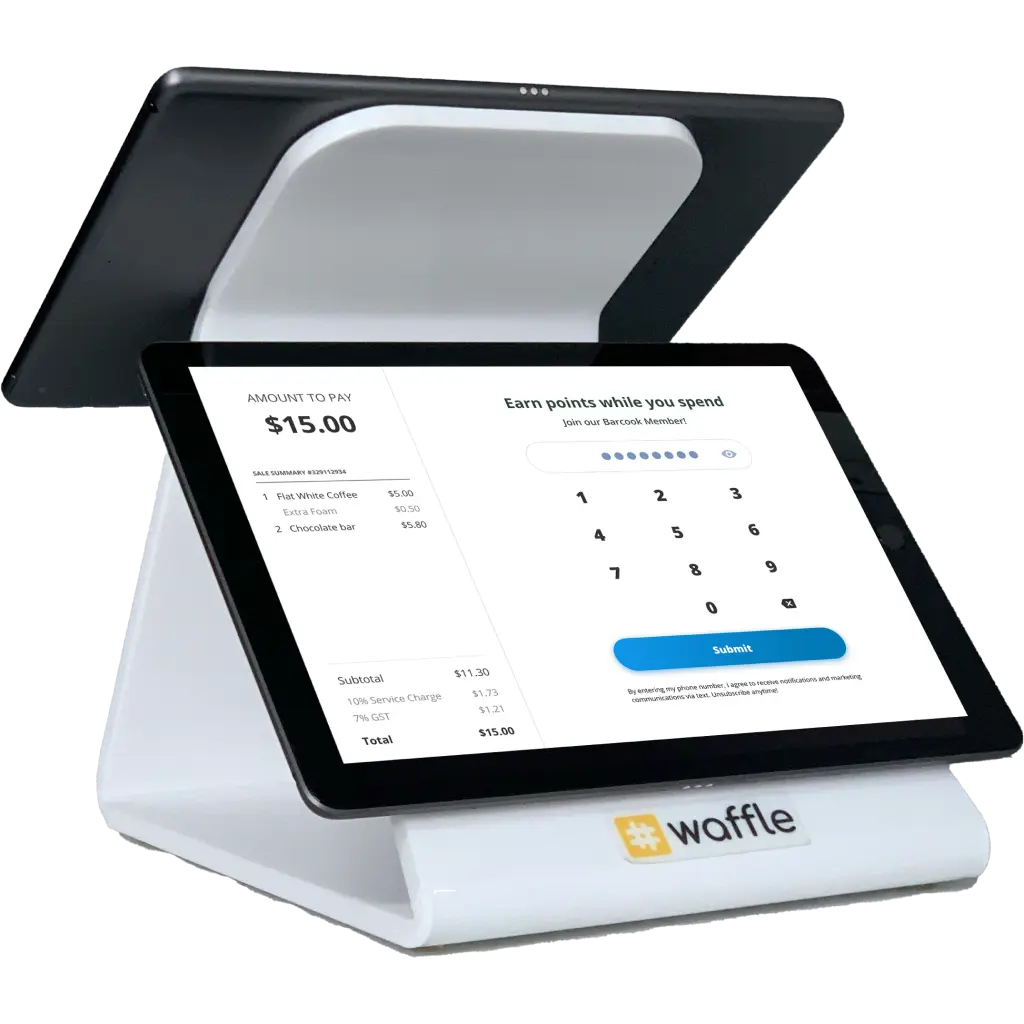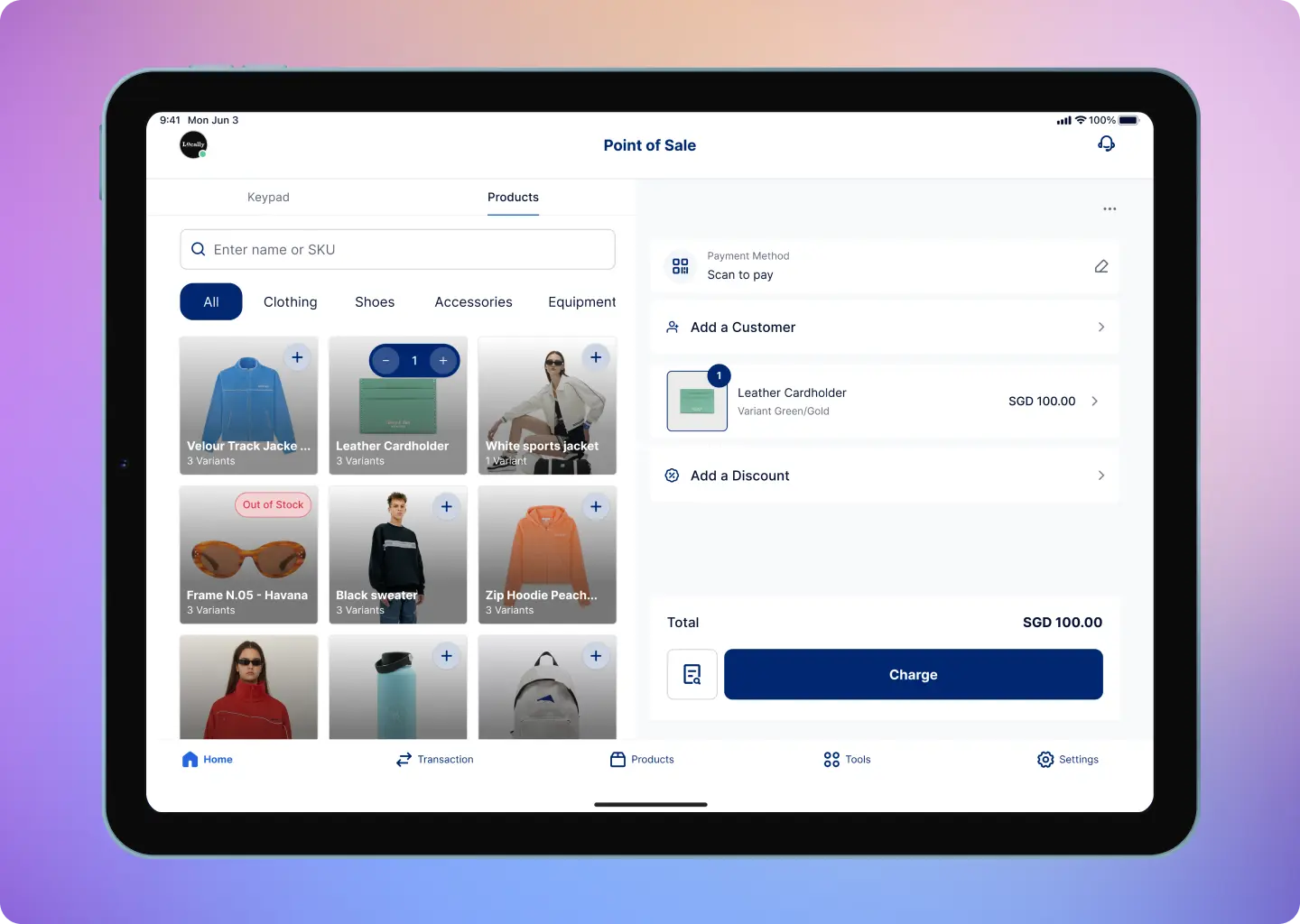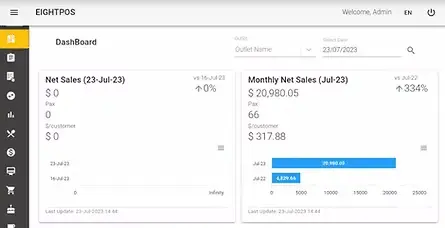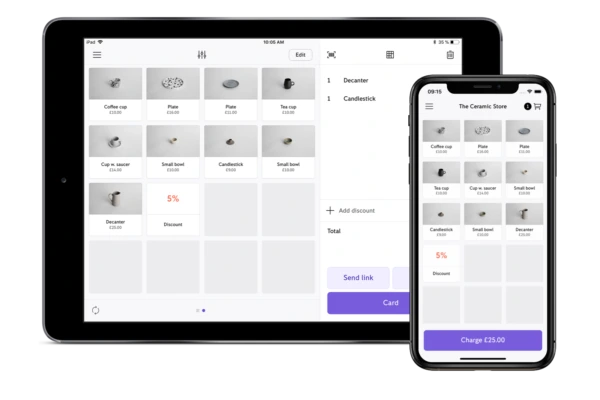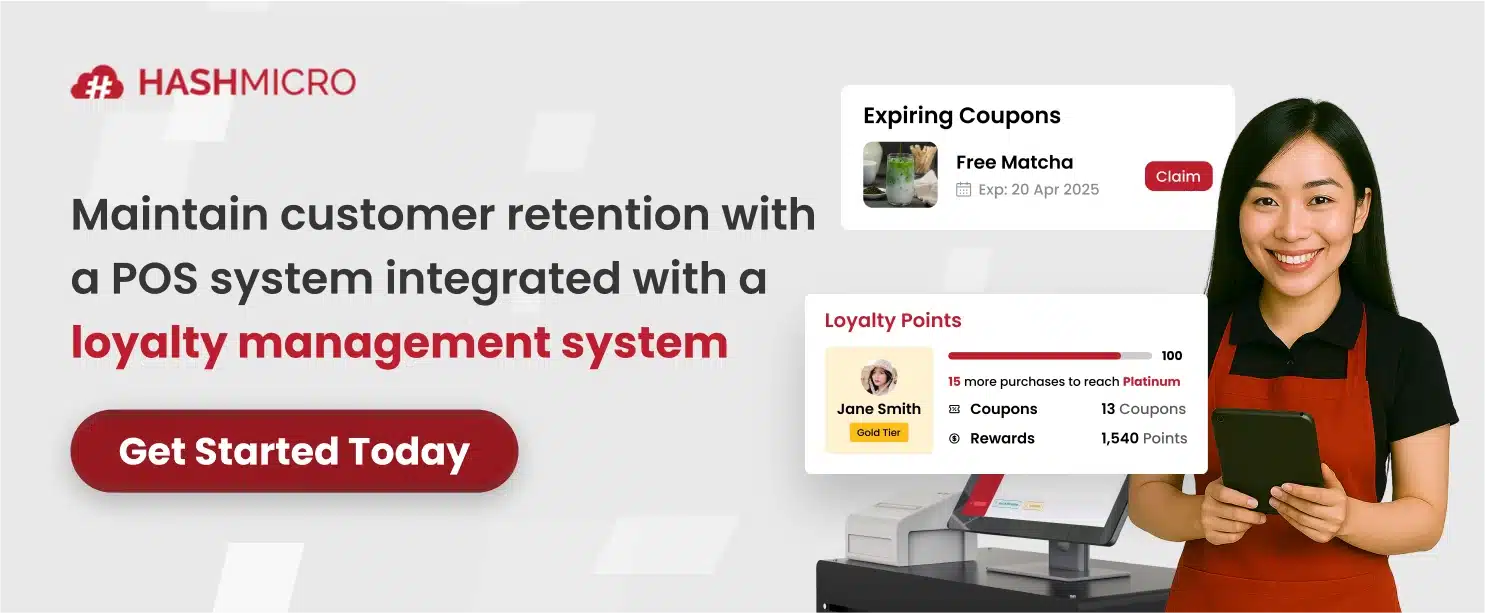In this article, we’ll recommend the 15 best retail software solutions for businesses in 2026, featuring both global platforms and locally supported systems to help businesses choose the solution that best fits their unique retail needs. Get a free demo now!
Key Takeaways
|
Shortlisted Retail Software Solutions
Based on my evaluation of current market offerings, I have highlighted several retail software solutions that stand out in supporting business operations. From inventory management and POS systems to customer engagement tools, these online retail software for small business can help retailers streamline processes, enhance efficiency, and stay competitive in 2026.
Best Because
The best end-to-end solution for all types of business needs
Best Because
Empowers retailers with advanced inventory control and integrated loyalty tools
Best Because
Unifies online and in-store sales with real-time inventory sync
Best Because
Unifies online and in-store sales with real-time inventory sync
Best Because
Tailored for restaurants and food-retail hybrids with built-in loyalty features
Best Because
Flexible cloud POS with multi-location management and built-in CRM tools
Best Because
Enterprise-grade iPad POS with advanced management and loyalty tools
What is Retail Software?
Retail software is a digital solution that helps retail businesses manage sales, inventory, and customer interactions. It automates retail processes, provides real-time data, and integrates key business functions into one digital platform.
There are many different types of online retail software for small businesses, ranging from basic point-of-sale (POS) systems for small outlets to comprehensive enterprise-level platforms that integrate with accounting, supply chain, and e-commerce systems.
With rising consumer demand for seamless service, fast transactions, and personalized experiences, retail businesses need technology that can adapt quickly and support data-driven decision-making.
Read more: Top 15 Loyalty Program Platform in 2025
15 Top Retail Software 2026 in Singapore
With various solutions available in the market, finding the one that best suits your business can be challenging. To help you get started, here are 15 of Singapore’s top retail software options for 2026, each offering unique strengths to suit different retail needs.
1. HashMicro POS Retail System
HashMicro POS is a comprehensive retail solution for Singapore and Southeast Asian businesses. Known for its robust functionality and local support, the system caters to a wide range of retail models, from small boutiques to multi-branch operations.
The system supports multi-outlet businesses, localized payment methods, and real-time data synchronization, making it highly suitable for retailers seeking automation, scalability, and detailed business insights. You can explore how it fits your operations by booking a free demo with HashMicro.
Key Features:
- Auto stock updates: Inventory levels are updated instantly with each transaction, allowing effortless stock and sales tracking.
- Flexible pricing and promotions: Easily adjust prices and apply discounts, making it simple to run promotional campaigns.
- Detailed staff and customer history: Every transaction is automatically recorded with time and date, enabling better tracking and performance insights.
- Real-time automated reports: All transactions are captured in real-time, providing clear and reliable reporting for informed decision-making.
- Customer-focused features: Supports loyalty programs and tools that enhance overall customer satisfaction.
- Smooth system integration: Offers seamless integration with other systems, such as CRM and inventory management, for a unified retail workflow.
| Pros | Cons |
|
|
HashMicro: Stands out as a strong retail solution for Southeast Asian businesses, offering automation, scalability, and local payment support. This makes it especially valuable for multi-outlet retailers that need real-time insights and seamless integration across operations.
HashMicro offers a pricing scheme tailored to your business needs. Click the banner below to see how the pricing scheme fits your requirements and request a free demo.
2. Lightspeed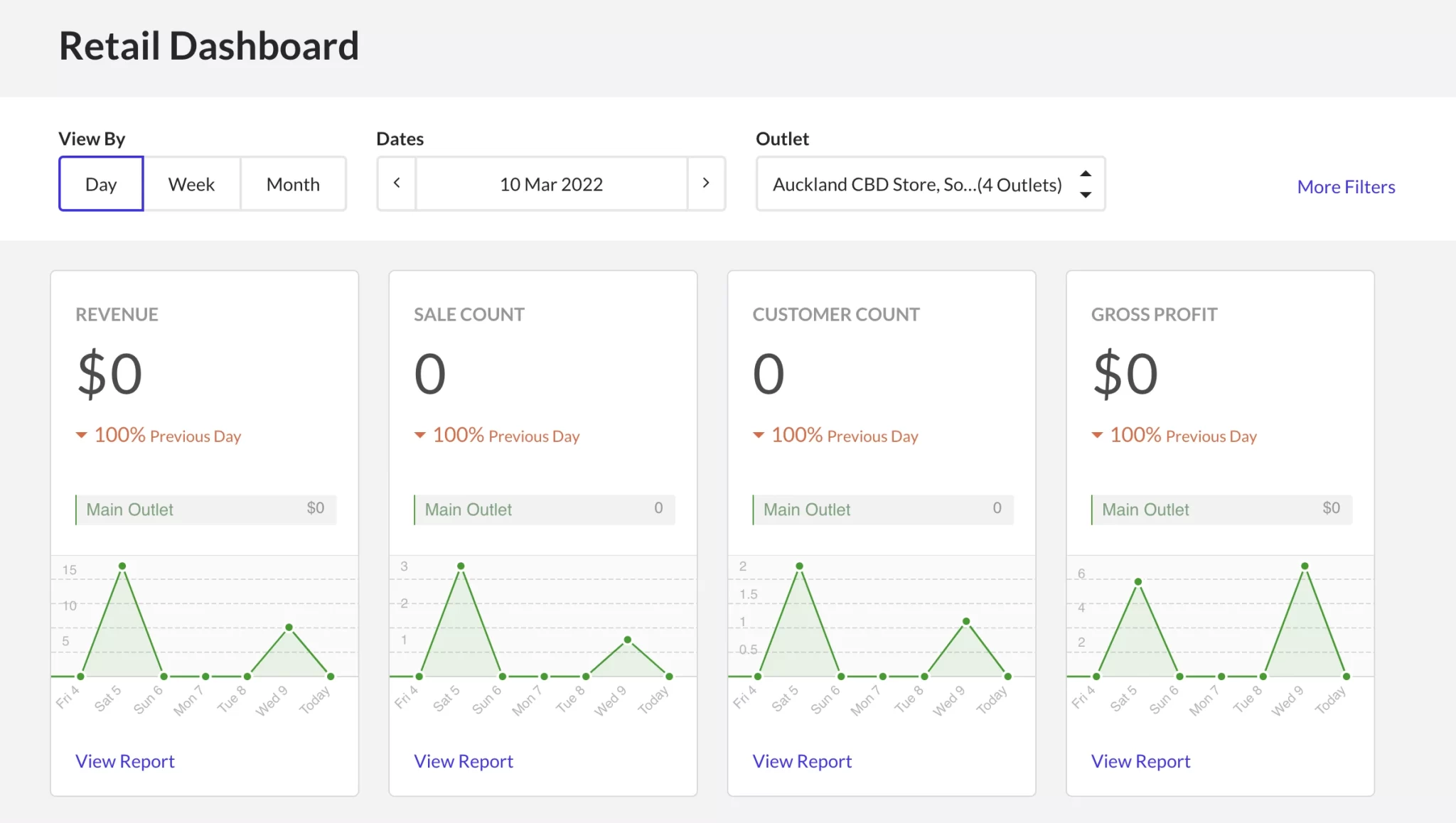
Lightspeed is a cloud-based retail POS and commerce platform for retailers of all sizes. It offers a comprehensive suite of tools for inventory control, sales tracking, customer management, and e-commerce integration, all accessible via an intuitive interface.
Key Features:
- Cloud-based POS for retail and eCommerce
- Advanced inventory tracking with reordering rules
- Customer profiles and loyalty tools
- Detailed sales and performance analytics
Pricing: Starts at $89/month (Basic), with higher tiers like $149/month (Core) and $289/month (Plus).
| Pros | Cons |
|
|
Lightspeed: A strong choice of online retail software for small business for retailers that want an all-in-one, cloud-based POS with advanced inventory tools and eCommerce integration.
3. Shopify POS
Shopify POS is an extension of the popular Shopify eCommerce platform, designed to offer seamless integration between online and in-person sales. It’s a go-to solution for businesses that want to unify their sales channels, automatically sync inventory, and provide a consistent customer experience.
Key Features:
- Unified platform for in-store and online sales
- Real-time inventory synchronization
- Integrated payment processing via Shopify Payments
- Customer profiles and purchase history
Pricing: Retail plan starts at $89/month (includes 1 POS Pro location), and POS Pro is $89/month per location on other Shopify plans.
| Pros | Cons |
|
|
Shopify POS: Best for businesses already on Shopify, offering seamless online-to-offline sales integration and simple inventory sync.
4. Clover Network
Clover POS is a flexible, all-in-one POS solution widely used by small to medium-sized retail businesses. It provides robust hardware and software options, from countertop terminals to mobile POS devices, making it ideal for various retail environments.
Key Features
- All-in-one POS with payment processing
- Customizable with apps via Clover App Market
- Employee time tracking and permissions
- Inventory and order management
Pricing: Virtual Terminal at $14.95/month after the trial
| Pros | Cons |
|
|
Clover Network: A flexible POS system that fits small to mid-sized retailers, combining versatile hardware with easy customization through its app marketplace.
5. Square Retail Software
Square for Retail is a retail-focused version of the popular Square POS system, designed with simplicity and affordability in mind. It’s an excellent choice for small businesses, pop-up stores, and first-time retailers seeking a user-friendly, cost-effective solution.
Key Features:
- Cloud-based POS with built-in payments
- Basic inventory and barcode scanning
- Customer profiles and sales history
- Free and paid plans available
Pricing: $0/month (Free), $49/month per location (Plus), $149/month per location (Premium).
| Pros | Cons |
|
|
Square Retail: Ideal for small businesses and pop-ups seeking an affordable, user-friendly POS with built-in payment processing.
6. Toast
Toast is primarily known as a restaurant POS system but also supports hybrid retail setups like cafes with merchandise, bakeries, or food-retail hybrids. Android-based, it’s designed to handle complex workflows combining food service and retail.
Key Features:
- Android-based POS for F&B and retail
- Kitchen and order management tools
- Loyalty and gift card integration
- Real-time sales and labor reports
Pricing: Starts at $0/month (Starter Kit) or $69/month (POS), with custom pricing available.
| Pros | Cons |
|
|
Toast: This software excels in hybrid setups like cafés or bakeries, seamlessly blending restaurant-grade POS tools with retail functionality in one integrated system.
7. Epos Now Retail System
Epos Now is a cloud POS platform in retail and hospitality. It’s designed to provide flexibility and scalability for businesses ranging from boutiques to large retail chains. The system supports hardware and software components and can be run on existing devices.
Key Features
- Customizable cloud-based POS system
- Multi-location inventory and staff management
- Real-time analytics and reports
- Loyalty and CRM tools included
Pricing: Software-only is commonly listed at $39/month (or an upfront annual option).
| Pros | Cons |
|
|
Epos: Now is a versatile cloud POS that scales from small boutiques to larger chains, with strong integrations and flexible device support.
8. Revel System
Revel Systems is a POS solution for retailers and restaurants requiring advanced functionality. Targeted at medium to large businesses, Revel combines sleek hardware with enterprise-grade software features, including inventory control, CRM, and workforce management.
Key Features:
- iPad-based POS with advanced backend tools
- Inventory, employee, and customer management
- Real-time sales and performance dashboards
- Loyalty program and gift card integration
Pricing: Commonly listed from $99/month (software).
| Pros | Cons |
|
|
Revel System: This online retail software for small business is best suited for larger retailers needing enterprise-level POS features, from advanced inventory to workforce and customer management.
9. Lavu
Lavu is a POS system designed initially for restaurants but increasingly adopted by hybrid food-retail operations, such as bakeries, juice bars, and cafés. Its flexible configuration allows retailers to manage inventory, staff, and payment processing through a sleek, cloud-connected interface.
Key Features
- iPad-based POS with cloud syncing
- Integrated payments and tipping features
- Inventory and menu item management
- Staff clock-in/out and reporting tools
Pricing: Starts at $59/month (with higher tiers available).
| Pros | Cons |
|
|
Lavu: A practical option for food-retail hybrids like juice bars or cafés, combining iPad-based POS simplicity with inventory and staff tools.
10. TouchBistro
TouchBistro is focused on F&B but adaptable for retail stores that include food service, such as convenience shops, deli counters, or cafes. It combines strong offline capabilities with customizable workflows, enabling consistent service without an internet connection.
Key Features
- Offline POS functionality
- Menu/item management and modifiers
- Tableside ordering (optional)
- Inventory and reporting tools
Pricing: Pricing starts at $69/month.
| Pros | Cons |
|
|
TouchBistro: Designed for F&B but works well for hybrid food-retail outlets, with strong offline reliability and customizable workflows.
11. MEGAPOS
MEGAPOS is a Singapore-based retail POS system that serves local SMEs across various sectors. It emphasizes ease of use and cost-effectiveness while offering essential tools like inventory control, customer database management, and basic CRM.
Key Features
- POS with support for local payment methods
- Inventory management with stock alerts
- Customer profile database and history tracking
- Basic reporting tools
Pricing: Plans are listed from $60/month (example published plans).
| Pros | Cons |
|
|
MEGAPOS: A straightforward, budget-friendly POS built for Singapore SMEs, offering essential retail features with local payment support.
12. Waffle Retail
Waffle Retail is a Singapore-based point-of-sale and inventory system tailored for fashion and specialty retailers. It offers an intuitive platform that streamlines inventory management, customer tracking, and sales analytics. The system also has strong offline functionality and support for popular local payment gateways.
Key Features
- POS with offline functionality
- SKU-based inventory management
- Integrated with NETS, PayNow, and local wallets
- Customer data tracking and simple loyalty tools
Pricing: Pricing is quote-based
| Pros | Cons |
|
|
Waffle Retail: Tailored for fashion and specialty stores in Singapore, combining offline reliability with support for local payment gateways.
13. Hitpay
HitPay is a payment platform offering a retail POS system for small businesses. Known for its seamless integration with a wide range of local and international payment methods, HitPay combines basic POS features with powerful invoicing, e-commerce, and online checkout tools.
Key Features
- Cloud POS with payment gateway integration
- Supports PayNow, NETS, Visa, GrabPay, etc.
- Basic product and inventory management
- Online store and checkout page creation
Pricing: No monthly fees, pay-per-transaction (rates vary by country).
| Pros | Cons |
|
|
HitPay: A solid option for small businesses needing flexible local and cross-border payment support, with basic POS and eCommerce tools included.
14. Eightpos Retail Software
EightPOS is a retail POS system that targets small retailers and service providers. It focuses on delivering essential POS and inventory tools with a clean, mobile-friendly interface. Many users appreciate its straightforward setup and compatibility with commonly used tablets and barcode scanners.
Key Features
- Basic POS and receipt printing
- Inventory tracking and alerts
- Discount and promotion setup
- Simple sales reporting
Pricing: SGD 60/month (Basic) and SGD 90/month (Plus), with Pro listed as TBC.
| Pros | Cons |
|
|
EightPOS: This online retail software for small business suits small retailers seeking a simple, affordable POS that runs on tablets and delivers just the core features they need.
15. Zettle POS
Zettle by PayPal is a mobile POS system popular among micro and small retailers, freelancers, and pop-up sellers. It offers an elegant card reader and an app that manages real-time sales, inventory, and analytics.
Key Features
- Mobile POS with card reader and app
- Sales tracking and basic product catalog
- Real-time inventory updates
- Receipts via email or print
Pricing: No monthly fee, pay-per-transaction (example: 2.29% + $0.09 for card-present in the US).
| Pros | Cons |
|
|
Zettle POS: Ideal for micro-retailers and pop-ups, offering a sleek card reader, mobile POS, and seamless PayPal integration.
Benefits of Using Retail Software
Modern retail businesses face increasing demands, from managing stock to serving customers quickly. Retail software helps streamline these challenges by bringing automation and real-time insights into daily operations.
Below are the key benefits retailers can gain:
- Automates Daily Operations: Retail software reduces repetitive manual tasks by automating stock updates, pricing, and order processing.
- Provides real-time inventory visibility: With instant access to stock levels across stores and warehouses, businesses can prevent overstocking and make smarter purchasing decisions.
- Enhances customer experience: Retail systems support loyalty programs, expedited checkout, and personalized promotions, helping you keep customers satisfied and loyal.
- Improves decision-making with data insights: Built-in dashboards and reports help retailers track sales trends and staff productivity for better strategic planning.
- Boosts staff productivity: By simplifying workflows and centralizing information, retail software enables employees to work faster and more efficiently.
Selecting the Right Retail Software for Your Business
Choosing retail software can feel overwhelming, but breaking it down into key steps can help you make a more intelligent decision. Here’s how:
- Define your business needs: Identify your store type (e.g., fashion, F&B, convenience), number of outlets, sales channels (offline only or omnichannel), and customer volume.
- Prioritize your must-have features: List the essential features you need, such as inventory tracking, payment processing, CRM, multi-outlet management, loyalty programs, or e-commerce site integration.
- Consider your hardware and payment preferences: Check whether the software supports your preferred device (tablet, desktop, mobile) and integrates with local payment systems in Singapore like NETS, PayNow, or GrabPay. Hardware compatibility can affect cost and setup time.
- Assess usability and learning curve: A powerful POS is useless if your team can’t use it. Look for intuitive interfaces, local support, and onboarding resources. Try free trials or demos before committing.
- Check for scalability: Don’t just buy for today, buy for tomorrow. Choose software that lets you upgrade features, add outlets, or expand into online sales as your business grows.
Conclusions
Online retail software for small business is vital in streamlining day-to-day operations, improving customer experience, and enabling business growth. Whether managing inventory or processing payments, choosing the right system can make all the difference.
Among the options available, HashMicro POS Retail System stands out as an all-in-one solution for Singaporean retailers. It offers robust inventory management, localized payment integration, multi-outlet support, and seamless scalability, all backed by a Singapore-based support team.
To explore how HashMicro POS can help streamline your retail operations, you can request a free demo and experience the system firsthand.
FAQ About Retail Software
-
Which technology is widely used in retail sales counter?
Retailers commonly rely on self-service checkout systems, RFID technology, and modern point-of-sale (POS) solutions to streamline transactions, handle inventory, and support various payment methods efficiently.
-
What is POS system in retail?
A POS system enables businesses to process customer payments and monitor sales activity. While the concept is straightforward, its implementation can vary depending on whether the business operates online, in a physical store, or across both channels. Traditionally, the term ” point of sale” referred to a physical cash register in a retail environment.
-
What are the three types of POS?
Three Types of POS Systems:
Cloud-based POS: Stores data online and allows remote access via the internet.
On-premise POS: Installed locally and runs on in-store hardware.
Hybrid POS: Combines cloud access with local backup for flexibility and reliability.





